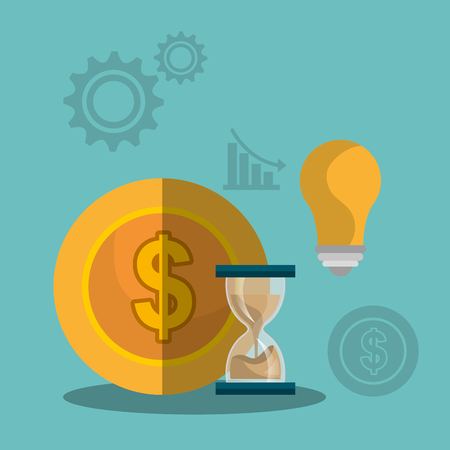1. Understanding the Challenge of No Credit History
If you’re a new entrepreneur or planning to start a small business in the U.S., you might be worried about your lack of credit history. This is a common challenge, and understanding how it affects your chances of getting a loan is the first step toward overcoming it.
What Does “No Credit History” Mean?
No credit history means that you haven’t borrowed money or used credit in your name before. Lenders, like banks and online lenders, usually look at your personal and business credit reports to decide if they can trust you to pay back what you borrow. If there’s no record, it’s hard for them to assess your risk level.
How Does It Impact Small Business Loan Eligibility?
Lending institutions use your credit history to predict whether you’ll make payments on time. Without this information, they may see lending to you as a bigger risk. Here’s how having no credit history can affect your loan application:
| Aspect | With Credit History | No Credit History |
|---|---|---|
| Loan Approval Chances | Higher | Lower |
| Interest Rates | Potentially Lower | Usually Higher (if approved) |
| Loan Amount Offered | Larger | Smaller |
| Required Documentation | Standard | More Extensive (e.g., business plans, cash flow statements) |
Why Do Lenders Care About Credit History?
Lenders want to minimize their risk. Your credit history tells them how reliable you are with money. Without it, they have less information to go on and may worry that lending to you could lead to losses.
Common Types of Loans Affected by No Credit History
- SBA loans
- Traditional bank loans
- Online business loans
- Lines of credit
If you don’t have a credit history, it doesn’t mean you can’t get funding—it just means you need to understand what lenders are looking for and explore other options that might work better for your situation.
2. Building Credibility Without Credit
Getting a small business loan without any credit history might feel like a huge challenge, but lenders look at more than just your credit score. By taking some practical steps to prove your reliability, you can show banks or alternative lenders that you’re a trustworthy borrower—even if you’re new to the game. Here’s how you can build credibility and boost your chances of getting approved:
Establish a Strong Business Plan
Lenders want to see that you’ve thought through your business idea and have a clear path to success. A solid business plan shows that you’re serious and organized. Make sure to include these key elements:
| Section | What Lenders Want to See |
|---|---|
| Executive Summary | A quick overview of your business and goals |
| Market Analysis | Your understanding of the industry and competitors |
| Marketing Strategy | Your plan for attracting and keeping customers |
| Financial Projections | Realistic estimates of revenue, costs, and profits |
| Operations Plan | How you’ll run the day-to-day business |
Demonstrate Cash Flow
If you don’t have credit history, proving that your business has money coming in is super important. Lenders want to know that you’ll be able to pay back the loan. Here’s how you can show reliable cash flow:
- Bank Statements: Provide recent statements showing steady deposits.
- Invoices & Contracts: Show signed agreements with customers or clients.
- Profit & Loss Statements: Share reports that break down your income and expenses.
Leverage Your Business Assets
If your business owns valuable assets, use them to your advantage when applying for loans. Lenders often feel more secure when there’s collateral involved, even if it’s not traditional real estate or equipment. Examples include:
- Inventory: Products or materials you own that can be sold.
- Equipment: Tools, machinery, or vehicles used in your operations.
- Receivables: Money owed to you by customers (accounts receivable).
Quick Tip: List Your Assets Clearly
| Asset Type | Description/Value Example |
|---|---|
| Inventory | $10,000 worth of retail goods in stock |
| Equipment | $5,000 delivery van owned outright |
| Receivables | $8,000 outstanding invoices from customers |
Create a Track Record With Vendors and Landlords
If you’ve been paying your suppliers or landlord on time, ask them for reference letters. These references help show lenders that you manage bills responsibly—even if it doesn’t show up on a credit report.
Show Personal Financial Responsibility
If your personal finances are strong (like consistent income, savings, or low personal debt), provide documentation to support this. Many lenders will consider both your business and personal financial habits—especially for new entrepreneurs.
Your Next Steps Matter!
You don’t need an established credit history to make a good impression with lenders. By preparing documents, listing assets, and showing responsible management of money, you can demonstrate that your business is ready for funding—even if it’s just getting started.

3. Considering Alternative Lenders and Loan Options
If you don’t have a credit history, it might feel like getting a small business loan is impossible. The good news is there are plenty of lenders outside of traditional banks who look at more than just your credit score. Let’s break down some popular alternative options that could help you secure the funding you need.
Online Lenders
Online lenders have changed the game for small businesses, especially for those with limited or no credit history. These lenders use technology to review your business’s cash flow, sales, and even your personal story. They’re usually faster in approving loans and often have more flexible requirements than big banks.
Pros of Online Lenders:
- Quick application process (often just a few minutes)
- Fast funding (sometimes within 24 hours)
- Willing to work with limited or no credit history
Things to Watch Out For:
- Interest rates can be higher than traditional banks
- Shorter repayment terms
Microloans
If you only need a smaller amount of money to get started or grow your business, microloans could be a great fit. Microloans are typically offered by nonprofit organizations and government programs like the SBA (Small Business Administration). They focus on helping new entrepreneurs who may not qualify for regular bank loans.
| Lender Type | Loan Amount Range | Main Benefit |
|---|---|---|
| SBA Microloan Program | $500 – $50,000 | Low interest rates; support for startups |
| Kiva (nonprofit) | Up to $15,000 | No interest; global peer-to-peer lending |
| Accion Opportunity Fund | $5,000 – $100,000 | Counseling & flexible terms |
Community Development Financial Institutions (CDFIs)
CDFIs are mission-driven lenders focused on helping underserved communities and small business owners. They offer personalized support and are more willing to lend to people with little or no credit history. You’ll find them as local credit unions, nonprofit loan funds, or community banks.
Why Consider CDFIs?
- More flexible qualification criteria
- Personalized guidance and business coaching
- A real commitment to helping local businesses succeed
Exploring these alternative options can open doors that traditional banks might keep closed. Whether you choose an online lender, apply for a microloan, or connect with a CDFI, there are paths forward even if you’re starting from scratch with your credit history.
4. Leveraging Personal Networks and Cosigners
If you don’t have a credit history, getting a small business loan can seem like an uphill battle. However, tapping into your personal network and finding a cosigner or guarantor can make all the difference. In the U.S., it’s common for entrepreneurs to rely on trusted friends, family members, or business partners to help bridge the gap when formal credit is lacking.
What Does a Cosigner or Guarantor Do?
A cosigner or guarantor is someone who agrees to take responsibility for your loan if you are unable to pay it back. Lenders see this as a sign of trustworthiness, especially if your cosigner has a strong credit profile. This can increase your chances of approval and may even help you secure better interest rates.
Who Should You Ask?
It’s important to choose someone with a good credit score and a stable financial background. Here’s a quick comparison:
| Potential Cosigner | Pros | Cons |
|---|---|---|
| Family Member | Trustworthy, likely to support your business goals | Can create tension if payments are missed |
| Close Friend | May understand your vision and be willing to help | Risk of damaging friendship if issues arise |
| Business Partner | Invested in your success, understands the risks | Their finances could be impacted by your loan performance |
How to Approach Someone About Cosigning
Be open and honest about why you need their help. Explain your business plan and how you intend to repay the loan. It helps to put everything in writing so everyone is clear on expectations.
Tips for Success:
- Build Trust: Share detailed information about your business and loan terms.
- Create an Agreement: Even if it’s informal, write down what each person is responsible for.
- Keep Communication Open: Update your cosigner regularly on your progress.
- Aim to Build Your Own Credit: Use this opportunity to establish good payment habits so you won’t need a cosigner in the future.
By leveraging personal relationships wisely, you can boost your chances of getting approved for a small business loan—even without an established credit history.
5. Using Collateral and Personal Guarantees
If you don’t have a credit history, lenders are likely to ask for additional ways to secure your small business loan. Two of the most common options are putting up collateral or signing a personal guarantee. Let’s break down what these mean, how they can help you get approved, and what you need to watch out for.
What Is Collateral?
Collateral is something valuable—like property, equipment, inventory, or even your car—that you pledge to the lender in case you can’t repay the loan. If you default on your payments, the lender has the right to seize and sell this collateral to recover their money.
Common Types of Collateral
| Type of Collateral | Examples |
|---|---|
| Real Estate | Your home or business property |
| Vehicles | Cars, trucks, vans owned by you or your business |
| Equipment | Machinery, computers, tools used in your operations |
| Inventory | Products you plan to sell |
What Is a Personal Guarantee?
A personal guarantee means that you, as the business owner, promise to repay the loan personally if your business can’t. In other words, if your company fails to pay back the debt, the lender can come after your personal assets—such as your savings account or house.
Collateral vs. Personal Guarantee: What’s the Difference?
| Collateral | Personal Guarantee |
|---|---|
| Pledges a specific asset (property, car) as security for the loan | Makes you personally responsible for repaying if your business can’t |
| Lender can seize only the pledged asset if you default | Lender can go after any of your personal assets to recover losses |
How These Options Can Help You Get Approved
- Lowers Lender Risk: By offering collateral or a personal guarantee, you show lenders you’re serious about paying them back—even without a credit history.
- Makes Approval More Likely: Lenders may be more willing to work with borrowers who provide extra security.
The Risks and Responsibilities
- You Could Lose Your Asset: If your business struggles and you can’t make payments, you might lose whatever you put up as collateral.
- Your Personal Finances Are on the Line: With a personal guarantee, your own money and property are at risk—not just your business’s.
Key Takeaways:
- Be realistic about what you’re willing and able to risk for your business.
- Read all agreements carefully before signing and consider consulting with a financial advisor or attorney.


